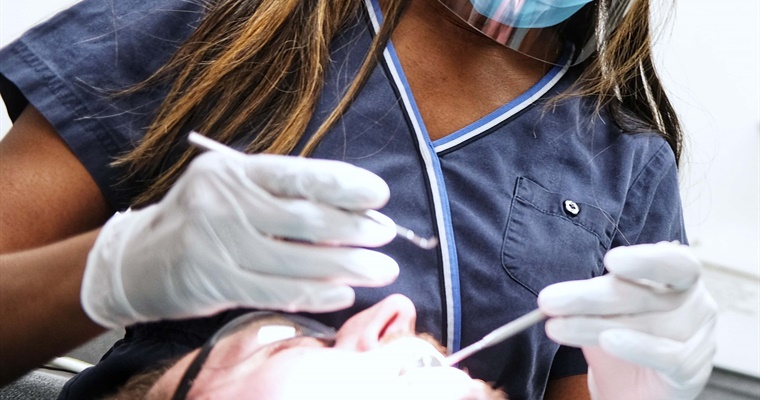Multimillion investment in six new research projects to investigate COVID-19 and ethnicity

Six new projects to improve our understanding of the links between COVID-19 and ethnicity have been funded by UK Research and Innovation (UKRI) and the National Institute for Health Research (NIHR). These projects will seek to explain and mitigate the disproportionate death rate from COVID-19 people from black, Asian and minority ethnic (BAME) backgrounds, including BAME health and social care workers.
Emerging evidence from the Office for National Statistics shows that, after taking account of age and other sociodemographic factors, BAME people are nearly twice as likely to die of COVID-19 than white people. There is an urgent need for more detailed data on why COVID-19 disproportionately impacts people from BAME backgrounds, building the essential evidence base needed to make recommendations to decision makers and protect the health of these groups.
The projects, which total £4.3 million worth of funding, will:
- explore the impact of the virus specifically on migrant and refugee groups
- work with key voices within BAME communities to create targeted, digital health messages
- introduce a new framework to ensure the representation of people from BAME backgrounds in clinical trials testing new treatments and vaccines for COVID-19, and
- create one the largest COVID-19 cohorts.
One of these projects will establish a unique partnership between national healthcare organisations to specifically address the prevalence of COVID-19 amongst BAME healthcare workers - who have been significantly overrepresented amongst the deaths from the virus. The GDC is one of the partners of this project. The mixed-method project will bring together existing datasets to calculate the risk of COVID-19 to all BAME healthcare workers and follow a group of these healthcare workers over the next 12 months to assess their physical and mental health - as well as engage directly with a smaller group of workers to gather qualitative data.
Dr Manish Pareek, Principal Investigator of the UK-REACH study, University of Leicester and Honorary Consultant at University Hospitals of Leicester NHS Trust said:
“Globally, we have evidence that people from BAME backgrounds have a higher chance of going to intensive care and dying from COVID-19 – this may also be the case for healthcare staff. Our study is the first to be conducted on a large scale, investigating why BAME healthcare workers could be at greater risk. A recent PHE report highlighted how 63 percent of healthcare workers that died from COVID-19 were from a BAME background. We want this research to improve the lives of healthcare staff – to this end, we have a stakeholder group of major national organisations to research and publicise our findings.”
This group of projects forms part of a rolling call for research proposals on COVID-19, jointly funded by UKRI and NIHR in response to the pandemic, and includes research on treatments, vaccines and the spread of the virus, as well as specific calls on COVID-19 and ethnicity, and the wider impact of the virus on mental health.
Further information about the UK-REACH project can be found below.
For further information on the five other research projects to investigate COVID-19 and ethnicity, please visit the UK Research and Innovation website.
_____________________
UK Research Study into Ethnicity And COVID-19 outcomes in Healthcare workers
Dr Manish Pareek, University of Leicester and Honorary Consultant at University Hospitals of Leicester NHS Trust - £2.1m
UK-REACH (UK Research Study into Ethnicity And COVID-19 outcomes in Healthcare workers) will calculate the risk of contracting and dying from COVID-19 for ethnic minority healthcare workers, with access to over two million healthcare records held by national healthcare organisations. This group of healthcare workers will include non-clinical staff integral to the day-to-day running of healthcare institutions including cleaners, kitchen staff and porters. It will follow a group of healthcare workers from BAME backgrounds over 12 months to see what changes occur in their physical and mental health. In addition, the study will interview a smaller group of healthcare workers to understand the risks of their jobs, and how they may have changed their professional and social behaviours in response to COVID-19. Finally, in order for the findings to be useful for healthcare workers, the team have put together a stakeholder group of major national organisations including the General Medical Council, the Nursing and Midwifery Council, General Dental Council, NHS Employers and BAME Professionals’ Associations to help conduct the research and provide evidence to policymakers so that decisions can be made in near real-time.
 eGDC
eGDC